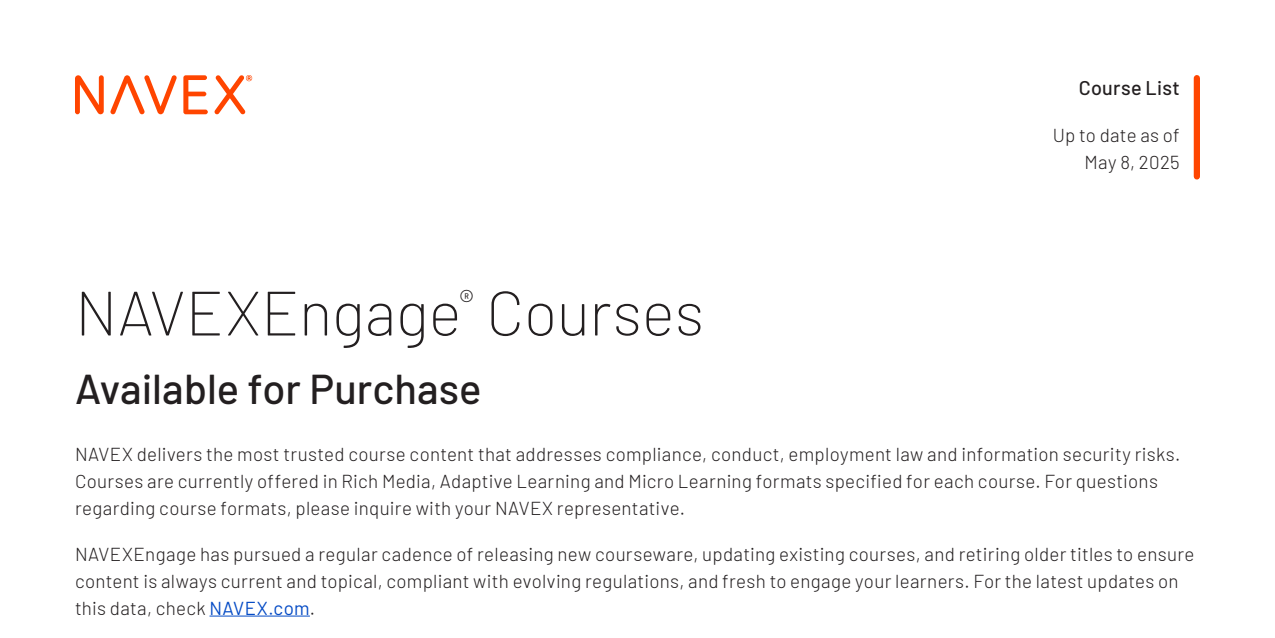In times of regulatory uncertainty, businesses often focus on speed: speed to market, speed to adapt, and increasingly, speed to reroute supply chains. But speed, when paired with pressure, creates risk. And one of the most pressing current risks is the resurgence of bribery and corruption, fueled by the economic volatility surrounding global trade and tariff policy.
As compliance professionals continue to brace for this surge in Executive Orders and shifting enforcement priorities, there’s a growing concern: are we entering a season of regress on anti-bribery protections?
Tariffs don’t just disrupt supply chains; they distort behavior
History tells us that tariffs and trade restrictions don’t just reroute goods – they can also create incentives for unethical conduct. When cost pressures mount and options narrow, companies and third parties may cut corners to maintain margins or gain access to restricted markets.
This creates fertile ground for:
- Improper payments to expedite customs clearance
- Gray-market sourcing and document falsification
- Increased reliance on unvetted third-party intermediaries
In high-tariff environments, it’s not hard to imagine how pressure can mount. A supplier facing shipping delays and rising costs may feel compelled to take shortcuts – perhaps by working through an unvetted intermediary or bypassing controls to avoid further disruption. These moments, often driven by urgency rather than intent, are exactly where bribery risk can surface.
What happens if FCPA enforcement slows?
There’s growing speculation that a second Trump Administration may bring a period of reduced federal enforcement in areas like anti-bribery and corruption. But even if enforcement volume slows, the risk doesn’t.
Here’s why:
- The FCPA statute of limitations outlives any presidency
- Reputational damage happens in real time
- Regulators in other countries (e.g., UK SFO, OECD) are still active and watching
This perceived enforcement “pause” may lull some companies into scaling back their programs. But the wiser path is recognizing that the absence of oversight does not remove responsibility or the consequences of noncompliance.
The case for ABC training right now
At NAVEX, we believe anti-bribery and corruption (ABC) training is not just a legal safeguard but a signal of a company’s culture. And in today’s climate, that signal needs to be clear and consistent.
A strong ABC training program:
- Raises awareness across global teams and third parties
- Outlines expectations in high-risk regions and roles
- Establishes defensible documentation if misconduct occurs
- Supports a speak-up culture in challenging operational environments
NAVEX training modules are designed to flex with emerging risks, and our modular content makes it easy to reinforce messages in specific regions, industries or functions. Rather than checking a box, you’ll embed ethics in every business decision.
Don’t wait for the headlines
We know what happens when ethical standards are treated as optional: delayed shipments become crisis communications, and small decisions become big headlines. In an increasingly polarized regulatory environment, companies cannot afford to sit back and wait to see how the enforcement winds shift.
They need to lead proactively, ethically and globally.
Where to go from here
- Evaluate your current bribery risk exposure: Who are your high-contact partners? Where are your supply chain stress points?
- Reinforce your training cycle: Is your team prepared to handle ethical dilemmas under pressure?
- Watch the warning signs: Are there shifts in behavior, reports or audit flags you’ve overlooked?
No one can predict the full shape of regulatory policy in the months ahead. However, one thing is clear: building a resilient, ethical culture now will always cost less than repairing one later.
If you’re looking for deeper insights into how to navigate this regulatory environment, you won’t want to miss our upcoming webinar, Executive Orders, Ethical Cultures: How to Manage Compliance Risks with Confidence, on July 9. Register using the link below.


